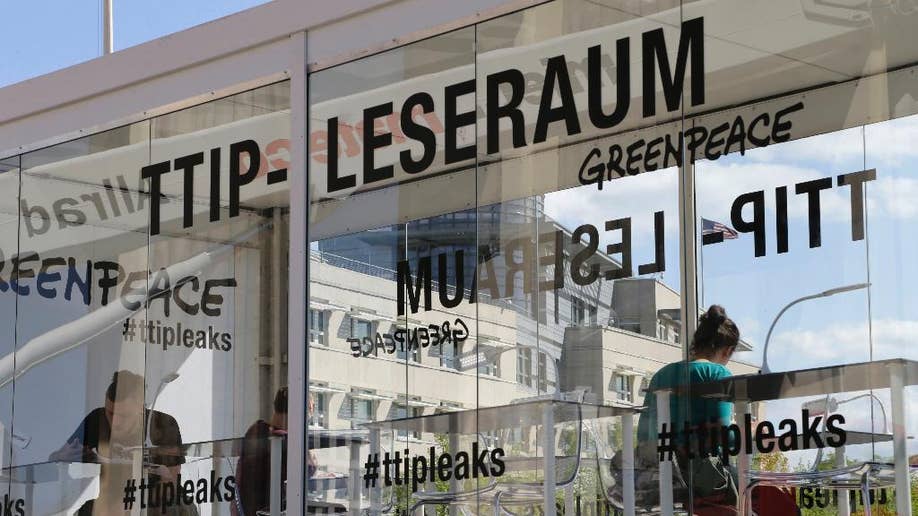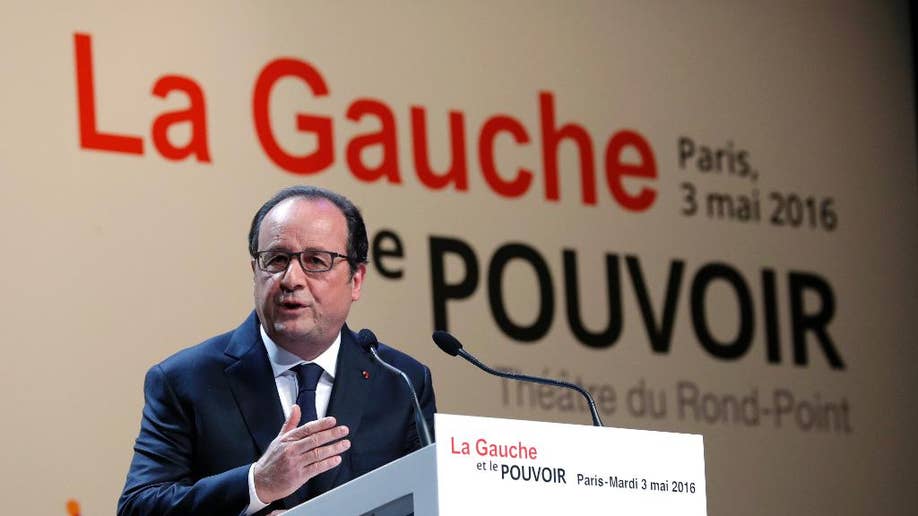France threatens 'no' to US-EU trade zone, amid new tensions
{{#rendered}} {{/rendered}}France is threatening to reject a huge free-trade deal between the U.S. and the European Union, saying it's too friendly to U.S. business and probably doomed.
Signs of trouble are dogging the creation of a Trans-Atlantic Trade and Investment Partnership (TTIP), a U.S.-EU free trade zone encompassing half the world economy.
President Francois Hollande said Tuesday that France "will never accept" challenges to its farming and culture in exchange for better access to U.S. markets.
{{#rendered}} {{/rendered}}"That's why at this stage, France says no," the Socialist leader said at a conference on left-wing politics.
Earlier Tuesday, French Trade Minister Matthias Fekl told Europe-1 radio that negotiations "are totally blocked" and that a halt to talks "is the most probable option." He insisted on better farming and environmental protections, adding that "in its current state, France cannot sign it."
"Europe is giving a lot ... but receiving very little in return," he said.
{{#rendered}} {{/rendered}}Trevor Kincaid, a spokesman for the U.S. trade representative's office, defended the deal as mutually beneficial and said the differences between the two sides are being worked out.
"We are confident that we are on track to deliver a high standard TTIP that reflects the interests and democratic values of both the U.S. and EU, and makes commonsense updates to our existing economic relationship," Kincaid said in a statement Tuesday.
European officials appear to be toughening their rhetoric after Greenpeace leaked large amounts of confidential negotiating documents that suggest the EU is coming under U.S. pressure to weaken consumer protections in key sectors.
{{#rendered}} {{/rendered}}The EU chief negotiator said several Greenpeace conclusions were "false" while Kincaid said the interpretations were misleading and sometimes wrong.
Still, EU negotiator Ignacio Garcia Bercero said Monday that major disagreements remain between the two sides following the 13th round of talks last week. The U.S. election campaign is complicating negotiations, making it increasingly unlikely that President Barack Obama can achieve a deal before leaving office.
France and some other European countries with rich culinary and farming traditions are particularly concerned about U.S. policies that give greater freedom to trade in genetically modified food, chlorine-rinsed poultry and hormone-treated beef.
{{#rendered}} {{/rendered}}France is also protective of subsidies to its film industry, fearing eventual domination by deep-pocketed Hollywood.
Greenpeace's Jorgo Riss welcomed France's stance, calling it "unsurprising, given that the Commission is clearly not following the mandate it was given by EU countries to protect European environmental and health standards."
_____________
{{#rendered}} {{/rendered}}AP Writer Maria Danilova in Washington contributed to the story


